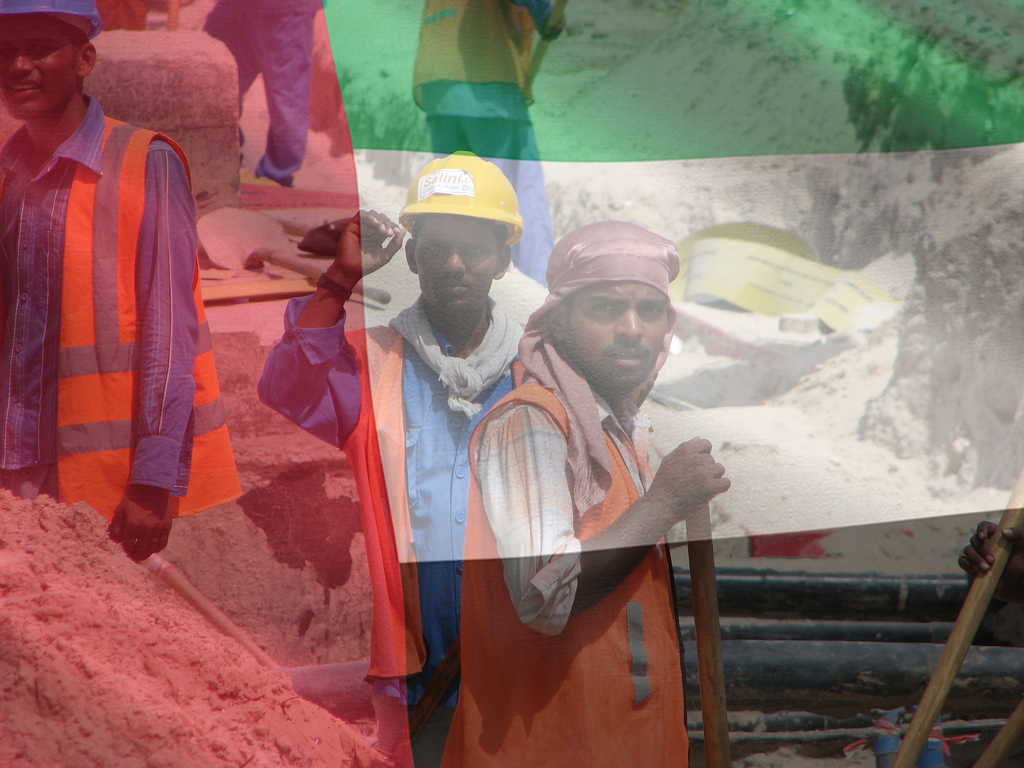“Authorities in the United Arab Emirates (UAE) continue their sustained assault on human rights and freedoms, including targeting human rights activists, enacting repressive laws, and using the criminal justice system as a tool to eliminate the human rights movement. These policies have led to the closure of civic space, severe restrictions on freedom of expression, both online and offline, and the criminalization of peaceful dissent.”
This is the opening paragraph of a joint statement published on May 1st by a number of NGOs engaged in the global fight for the protection of human rights. (https://www.hrw.org/news/2023/05/01/joint-statement-uae-human-rights-record-ahead-cop28) Among the signatories: Amnesty International, Democracy for the Arab World Now (DAWN), Geneva Council for Rights and Liberties, Human Rights Watch (HRW), IFEX and No Peace Without Justice.
According to the statement, since 2013, the UAE has appeared in every annual report of the UN Secretary-General on intimidation and reprisals against those seeking to cooperate or having cooperated with the UN, demonstrating the continued harassment faced by human rights defenders in the UAE. The 2021 report describes “cases of arbitrary detentions, long prison sentences and the use of counter-terrorism legislation to target human rights defenders [in the UAE], including those facing reprisals for cooperation with the United Nations,” and criticizes “law No. 7 on Combatting Terrorism Offences (2014), noting that its overly broad definitions of terrorist organizations might severely curtail the work of human rights defenders, including their ability to engage in international forums.”
For more than 10 years, according to the signatories of the joint statement, UAE authorities have been unjustly detaining at least 60 Emirati human rights defenders, civil society activists, and political dissidents who were arrested in 2012 because of their demands for reform and democracy or their affiliation with the Reform and Social Guidance Association (al-Islah). Some from this group, which are commonly known as the "UAE 94" because of the number of defendants in their mass trial, were subjected to enforced disappearance, torture, and other ill-treatment. They were sentenced to between 7 and 15 years in prison during a trial in 2013 that failed to meet minimum fair trial standards.
More than three-quarters of these prisoners have completed their sentences yet remain in arbitrary detention to date. UAE authorities refuse to release them, alleging that they continue to pose a "terrorist threat," based on vague laws that allow their indefinite detention, in flagrant violation of international human rights law.
The signatories also note that the UAE government could try to use its COP28 presidency to cynically promote an image of openness and tolerance, despite the UAE’s failure to respect the rights to freedom of expression, association, and peaceful assembly. (The UAE will host the 28th United Nations global climate talks (COP 28) from 30 November to 12 December 2023.)
The NGOs fear that the severe restrictions imposed by the UAE authorities in recent years will hinder the full and meaningful participation of journalists, activists, human rights defenders, civil society, youth groups, and indigenous peoples’ representatives at COP28.
The signatories end their strong statement with a list of 7 recommendations for the UAE government:
1. Immediately and unconditionally release all those detained solely for the exercise of their human rights.
2. End all abuse and harassment of detained critics, human rights defenders, political opposition members, and their families;
3. Amend all repressive laws that violate human rights, including the Anti-Terrorism Law, the Penal Code, and the Cybercrime Law, and bring them into line with international human rights standards;
4. Close all secret detention centers;
5. End all restrictions on civil society organizations, and allow the establishment of entirely independent civil society institutions;
6. End restrictions on civic space and uphold the rights to freedom of expression, association, and peaceful assembly to enable meaningful participation of civil society and indigenous peoples at COP28;
7. Ensure an ambitious and human rights-consistent outcome of COP28, including through but not limited to the adoption of a call to all states to phase out all fossil fuels and all fossil fuels subsidies to meet the objectives of the Paris Agreement.










Trackbacks and Pingbacks